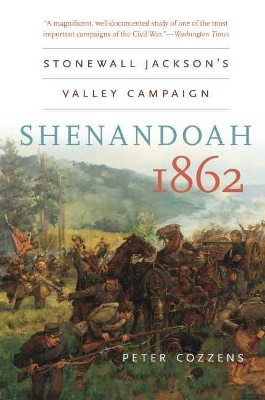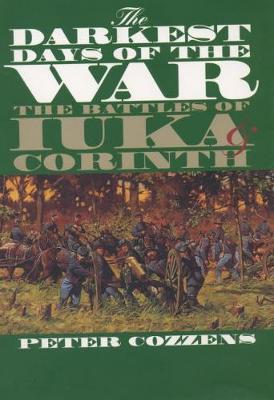Civil War America
2 total works
One of the most intriguing and storied episodes of the Civil War, the 1862 Shenandoah Valley Campaign has heretofore been related only from the Confederate point of view. Moving seamlessly between tactical details and analysis of strategic significance, Peter Cozzens presents a balanced, comprehensive account of a campaign that has long been romanticized but little understood. He offers new interpretations of the campaign and the reasons for Stonewall Jackson's success, demonstrates instances in which the mythology that has come to shroud the campaign has masked errors on Jackson's part, and provides the first detailed appraisal of Union leadership in the Valley Campaign, with some surprising conclusions.
During the late summer of 1862, Confederate forces attempted a three-pronged strategic advance into the North. The outcome of this offensive - the only co-ordinated Confederate attempt to carry the conflict to the enemy - was disastrous. The results at Antietam and in Kentucky are well known; the third offensive, the northern Mississippi campaign, led to the devastating defeats at Iuka and Corinth - defeats that would open the way for Grant's attack on Vicksburg. Peter Cozzens here presents a book-length study of these two complex and vicious battles. Drawing on extensive primary research, he details the tactical stories of Iuka - where nearly one-third of those engaged fell - and Corinth - fought under brutally oppressive conditions - analyzing troop movements down to the regimental level. He also provides compelling portraits of Generals Grant, Rosecrans, Van Dorn and Price, exposing the ways in which their clashing ambitions and antipathies affected the outcome of the campaign. Finally, he draws out the larger, strategic implications of the battles of Iuka and Corinth, exploring their impact on the fate of the northern Mississippi campaign, and by extension, the fate of the Confederacy.

